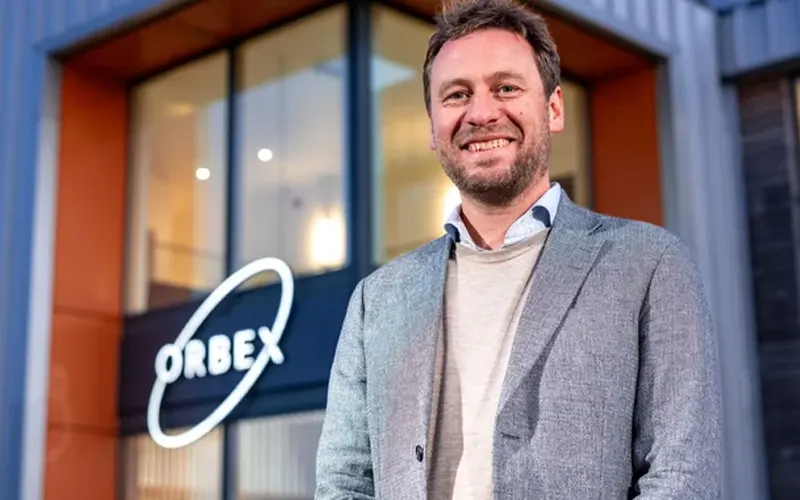 Credit: Orbex
Credit: Orbex
While speaking to the UK Engagement with Space Committee on 23 June, Orbex CEO Phil Chambers said the company would be able to compete with SpaceX on price once it introduces its medium-lift Proxima rocket.
The UK Engagement with Space Committee was established by the House of Lords in February 2025. Its purpose is to assess the UK’s current space capabilities, identify growth opportunities, and make policy recommendations to strengthen national engagement with space. As part of its mission, the committee has held several sessions during which policymakers, industry leaders, and academics have given oral evidence to help inform its ongoing inquiries.
Orbex is currently working toward the inaugural flight of its small Prime rocket, which is not expected before 2026. In addition to its work on Prime, the company announced in December 2024 that it had paused development of its Sutherland launch facility to focus on a new, larger rocket called Proxima. The primary motivation for developing this medium-lift vehicle was to strengthen the company’s position in securing a contract under the European Space Agency’s European Launcher Challenge (ELC). In February, Chambers explained that winning an ELC award would “positively affect the business moving forward.”
During his oral evidence at the 23 June UK Engagement with Space Committee session, the Orbex boss went further, explaining that by securing an ELC contract, the company would be in a position to compete with SpaceX.
“We need a long-term plan to build the capability, because if we can get a working medium-lift vehicle that is scalable, which is what our European Launcher Challenge bid is all about, we will be able to compete on price with SpaceX,” said Chambers.
While he emphasised the importance of securing an ELC contract, particularly because it provides access to compete for ESA launch opportunities, the Orbex CEO also criticised the country’s Ministry of Defence for its reluctance to act as an anchor customer for a domestic launch firm.
“We need anchor customers,” explained Chambers. “It would be absolutely fantastic if the MoD could come in and say, ‘Yes, we want to procure some launches from our sovereign launchers that we have in this country.’”
Chambers pointed to a contract awarded by the French Ministry of Defence as a strong example of how government support can bolster domestic launch capabilities, saying, “If we could see that kind of thing in this country, it would really help.”
Without meaningful institutional support from the UK and potentially the ELC initiative, Orbex may struggle to realise its commercial ambitions for Prime, let alone its larger goal of introducing Proxima. When the company announced it was shelving work on the Sutherland spaceport to focus on the medium-lift vehicle, it pointed to a “challenging investment climate.” That climate is unlikely to improve as Orbex continues to fall further behind its competitors in France and Germany.